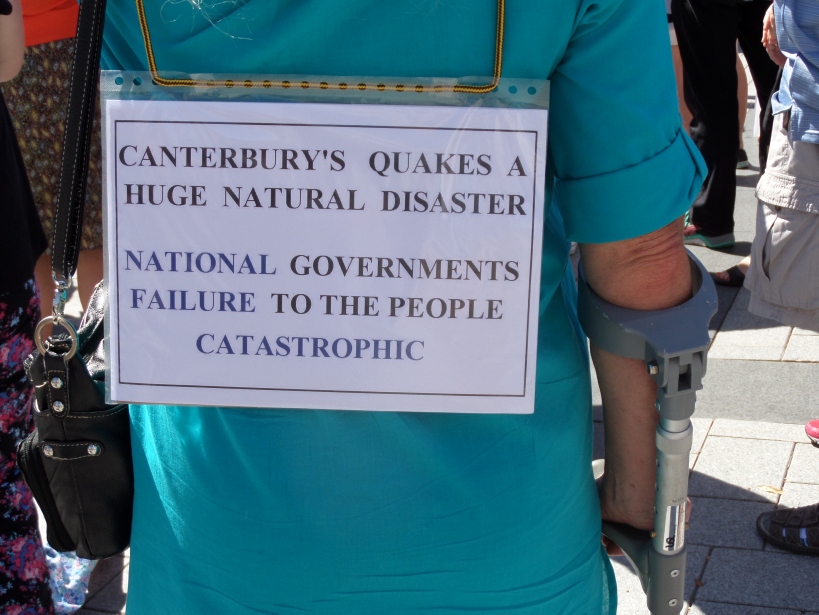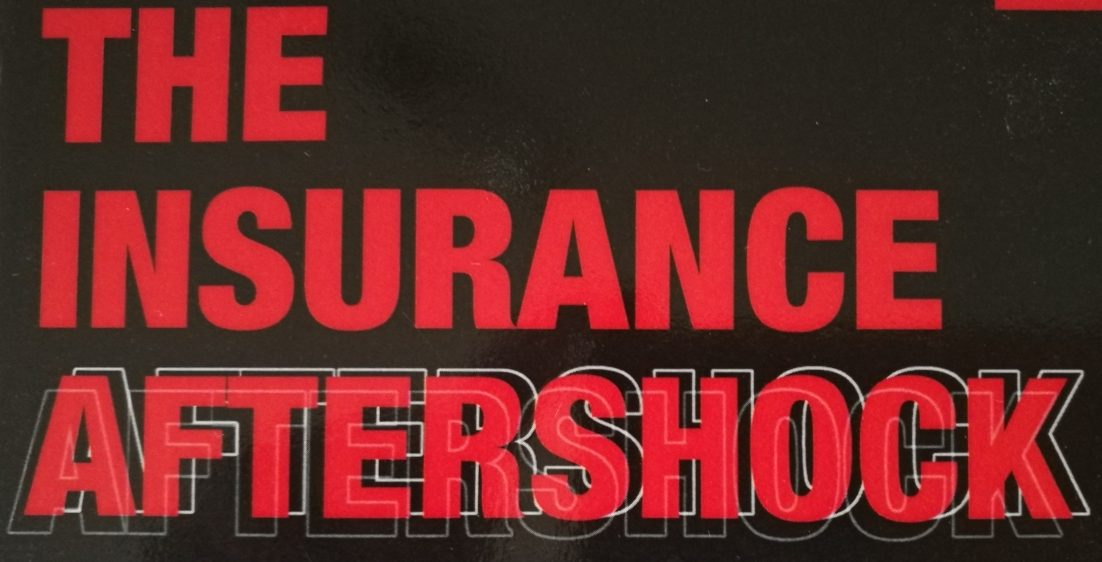Memorials acquire their landscape definition from sentiment, utility and social purpose. Yes, we sadly lost 185 people during the February 22nd 2011 earthquake and they should be remembered. It is my sincere trust that they are now in a better place and the intent of this article is in no way intended to diminish the impact of their loss on family and friends.
Yet, as far as I am aware, none of the politicians who participated at the 22nd memorial had family members or loved ones directly involved in the loss of lives – but they all flocked in, anyone who was ‘anyone’ was present for the Nation and the world to see. Let us not forget that the politics of memory is the political means by which an event is remembered and recorded. Memories are influenced by political and cultural forces. Genuflecting soldiers and head-hanging prime ministers laying wreaths, if you like. Attempts to commemorate loss unavoidably create a distinct political landscape. It is valuable to examine the context in which that landscape exists.
The protest organized the day before, relating to the ongoing, real and serious issues around EQC and insurer dishonesty and the huge and ongoing losses sustained by ordinary people, was all but boycotted by the politicians. Megan Woods and Ruth Dyson from the Labour Party were there along with a couple of city councillors, but no luminaries from government or other persons who ‘mattered’ were present – no Mayor, no Earthquake Recovery Minister, no Prime Minister, no chief executive of the Insurance Council nor other Senior Ministers for that matter – no one! The selectivity of these individuals serves a political purpose – if they were not present then as far as the rest of the country and the world is concerned, the event did not happen. By their absence, they make it easier to justify their own versions over the protesting group’s claims. They also send a clear message to the protesting group. YOU ARE ON YOUR OWN. This is how states, countries, and cities manage reputational damage on a global stage. The government represents its country to international audiences through memorial – and it provides the perfect stage – they keep alive the memories of conflict and pain for political purposes, they provide an official history, a sponsored, authorised and endorsed history on the subject – histories produced for and by a government. They create an impression of ‘caring’, ‘civilised’, ‘1st world’ ‘honourable’ to fuel the global view of our Nation. You have often heard it said that ‘only winners write history’. Such events as these reveal the power relations and real agendas within a society.
To the astute observer, the strengths, weaknesses and quality of a society are demonstrated in its management of such events and the positive qualities are often mirrored in their memorialisation. For the previous day (February 21), a large group of desperate policyholders and ordinary citizens of Christchurch and New Zealand, had invited their representatives to attend a rally – they were presented with the opportunity to offer their version of events and of being heard. The offer fell on deaf ears. The people of Christchurch were once again abandoned, left to wallow in their respective problems in the knowledge that no one is listening. There were no government responses, there is likely to be little more than rhetorical appeasement, and certainly no major political reforms or revelations. The National Media also gave the event little coverage. Very sensitive. The problems at issue, matter. The character of the government we have, matters. Yes, the extent to which a political party and the political representatives ‘absorb’ the issues which concern the people, or even show that they are listening, matters. Of course, the corollary on ‘listening’ is that the listener must provide a response and so for those who have already decided what their course of non-action will be, ‘listening’ is a simply a threat to their policy.

National Government’s Failure
Protests are a ‘less than conventional’ form of political participation that is chosen because ‘conventional’ forms are denied or ineffective. ‘Conventional’ forms would be things such as serious parliamentary discussion about the plight of Canterbury policyholders at the hands of not only greedy and dishonest insurance corporates but also two government entities, or perhaps the establishment of a genuine parliamentary enquiry into the actual state of affairs in respect of the many concerns. That is democracy.
But to return to the point – We need to remember that the history of bowed heads at memorials, building monuments, putting plaques on stuff, etc, etc, all reinforce the Government position on an event. Memories of the annual bowing of anointed heads while the whole five soldiers of our army stand to attention, will remain long after the suffering of Canterbury’s mistreated population has been buried. …… The media have already done a sterling job of keeping the travesty out of the sight of the rest of New Zealand and for Gerry Brownlee, time cannot pass fast enough to put this travesty into history.
They really do think that it will all go away?………..One thing is certain, there will be no memorial for the thousands of families that lost their equity, homes, health and opportunity as a result of a ‘corrupt’ democracy.
http://www.nzherald.co.nz/nz/news/article.cfm?c_id=1&objectid=11593215
http://www.radionz.co.nz/news/regional/297062/protests-and-memorials-ahead-of-quake-anniversary

Pingback: Memorials write political history our protests don’t
February 27, 2016 at 3:18 am
Thank you Sarah for keeping this blog alive.
It is interesting that the Australian media cover the fiasco more than our own media channels. So many of my friends have emailed in sympathy after watching a programme on the ABC by Hamish Fitzsimmons on 16 February. It is still available for anyone interested to watch on the Internet.
LikeLike
February 27, 2016 at 5:28 am
Have you got the link? Thanks for your message- yes interesting isn’t it that international media picked it up.
LikeLike
February 27, 2016 at 7:08 am
Just Google “ABC Lateline Christchurch Earthquake” and several links will come up.
LikeLike
February 27, 2016 at 12:34 pm
Here it is Sarah.
http://www.abc.net.au/lateline/content/2015/s4408012.htm
LikeLike
February 28, 2016 at 10:20 pm
Thanks for that Satish
LikeLike
February 27, 2016 at 2:57 am
The dead, they can do nothing for so they turn up making themselves look respectable. The living, they could help, instead they ignore and avoid being disrespected
LikeLike